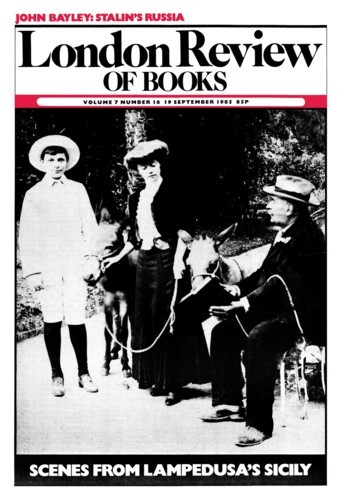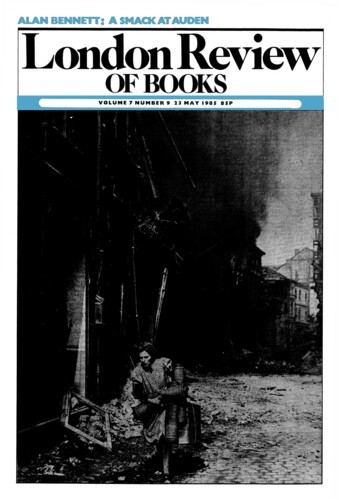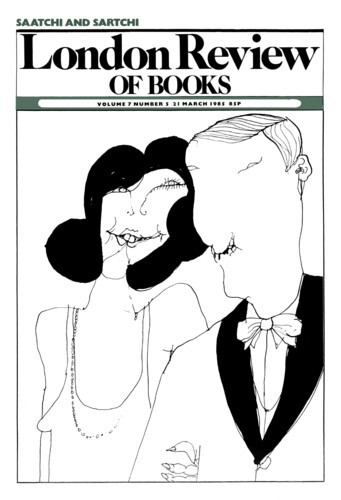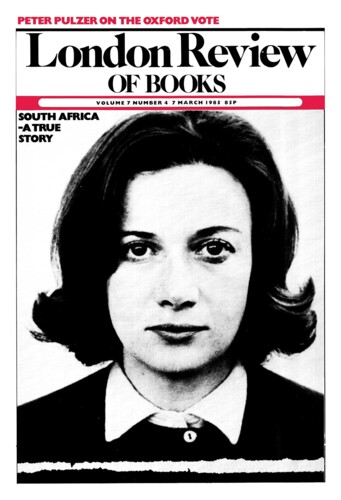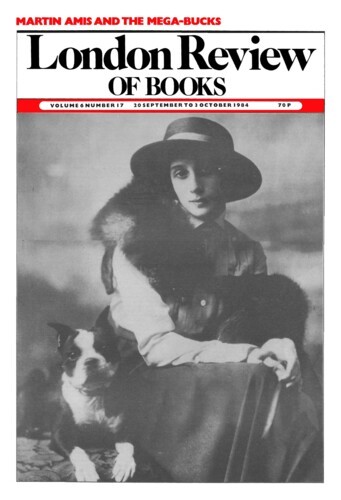Pound and the Perfect Lady
Donald Davie, 19 September 1985
Thanks to Clive Wilmer among others, an exhibition of paintings, sculptures, photographs and printed material bearing on Pound’s interests in ‘the visual arts’ was mounted for the Cambridge Poetry Festival on 14 June, and could be seen in Cambridge’s not sufficiently renowned Kettle’s Yard Gallery until 4 August; it will now be at the Tate from 11 September to 10 November. Humphrey Carpenter’s report on the exhibition for the TLS of 28 June will hardly choke the turnstiles. The show has, he said, ‘something of the air of a school reunion about it’, and with a few exceptions ‘it is the Pound business much as usual.’ No one, he thinks, who is unfamiliar with ‘Pound’s P.T. Barnumising for the visual arts’ will know what to make of it. This tone is intolerable, and augurs very ill for Carpenter’s biography of Pound, said to be in the works. No one who reads the three solid essays in what is described as the catalogue of the exhibition (though it isn’t quite that) can think that ‘Barnumising’ in any way describes Pound’s ardent response to painting and sculpture, photography and architecture, first in London 1908-1920, then in Paris 1920-1925, and thereafter in Italy. Carpenter, predictably, finds the three essayists – Richard Humphreys, John Alexander and Peter Robinson – ‘taking a rather solemn approach to the whole thing’; whereas, he assures us, Pound’s exertions on behalf of these arts partook ‘more than a little of the amiable joke’. Before it is through, Pound’s centenary year will bring on indigestion in even the most devoted Poundians. But whether his artistic life was, as a few think, exemplary, or, as rather more think, a fearsomely cautionary fable, it is at all events a matter of some solemnity, and the amused weariness of we-have-heard-it-all-before will not serve in 1985 as it did in 1920 or 1940 or even, scandalously, as late as fifteen years ago. We have not heard it all before, unless we have read, as few of us have, Harriet Zinnes’s compendium Ezra Pound and the Visual Arts, which all these essayists draw on very heavily. Amiable joking was never what Pound intended, and only a total insensitivity to his tone of voice could lead one to think otherwise.
